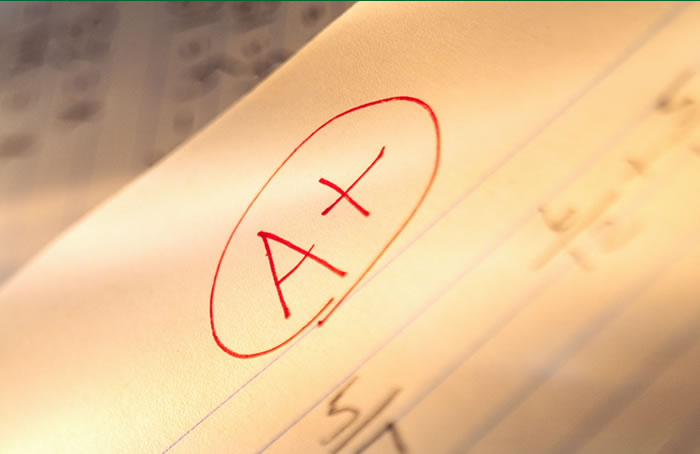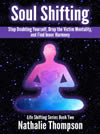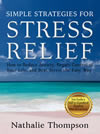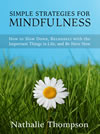
Perfectionism is characterized by having excessively high performance standards.
Perfectionism is one of those things I’ve struggled with my entire life. When I do things, I want to know that I’ve done them to the best of my ability, and I have no tolerance for slip-ups. When I mess up on something that I really want to do, I am very hard on myself. And it’s probably not a particularly healthy personality trait to have, because you’re constantly in a state of stress if you feel you never measure up. I’ve always been like that, though, so I’m kind of used to it.
But recently, I’ve been wondering if maybe it’s time to rethink my perfectionist ways, and see if there’s a better way of handling things. According to Wikipedia,
This definition really hit home for me after a particularly disastrous second speech that I gave for my Toastmasters group last month. It was awful. I had practised the speech, it was memorized, it had a great opening and was even kind of funny… and I stood up in front of that room and could not remember a single word of my speech. I struggled my way through, and everybody was really nice in the evaluations, mentioning all the things they liked about the speech. And all I could concentrate on was how horrible I’d done. I could not see any good points to my performance at all. I actually cried when I got home because I was so mad at myself for screwing up so badly, and I was upset for two whole days.
Which is ridiculous, because Toastmasters is all about learning. It’s a totally non-threatening environment in which to practice and become more comfortable speaking in front of an audience. You don’t have a promotion or business deal or anything of any real importance riding on your performance of any given speech, so it doesn’t make any sense to take one bad one to heart the way I did. Especially since I suspect that every single speaker out there has had at least one such experience behind them.
So not worth upsetting myself for two days. But when you’re a perfectionist, it’s hard not to be hard on yourself when you don’t measure up to your own standards. So I decided to come up with a strategy for letting go of perfectionism:
5 Optimism-Inducing Strategies for Decreasing Perfectionism

Learn to accept that things don’t have to be perfect to be great.
- Find one good thing you did right. You may feel your performance was awful in every regard, but there is always at least one thing you did right or did well. Look for it, and you will find it; it’s always there.
- Just stop. Stop beating yourself up. Actually tell yourself: “Stop!” as soon as you become aware of the negative self-talk you’re subjecting yourself to. Remind yourself that it’s not the end of the world just because it didn’t go as planned. You know you’ll do better next time, so don’t sweat it now.
- Be a better friend. If you had a friend who talked to you the same way you talk to yourself, you’d drop ‘em like yesterday’s garbage. Think about what a good friend would say to you, or what you would say to your best friend if he or she was in your shoes. Give yourself some encouragement!
- Adjust your standards. If your standards are higher for yourself than they are for anyone else, then that should probably tell you something; perhaps your standards are just plain unrealistic. What would your reaction be if someone else had just performed the same way you did? If you would be supportive of them and happy for what they did well, then you should have those same standards for yourself.
- Move on. These things happen sometimes… let it be and let it go. Ask yourself what you can do move forward from this point on. Then take one step forward at a time, and don’t give up. You can do it… you know you can!
I’ll be keeping these five perfectionism reducing strategies in mind next time I don’t do things quite as well as I’d wanted to, and I hope you’ve found them useful, too. Perfectionism can be a difficult habit to break, but leaving this habit unchecked can have very detrimental effects on your self-esteem, and probably even your physical health. I’m learning to accept that things don’t always go as planned, and that things don’t have to be perfect in order to be good, or even great. And I think I’ll be better off for it. 🙂

















Hi Nathalie,
I bet your speech at Toastmasters was way better than you thought.
What stopped me cold on perfectionism was the realization that I couldn’t judge myself without also judging others. Even if I thought I wasn’t applying ‘standards’ to anyone but myself, in some inner corner, I was. Only by giving myself blanket permission to mess up am I able to let go completely of judging others.
I can’t say I’m perfect at it yet (irony, anyone?), but I’m conscious of the connection. Judge myself = judge others. No thanks.
Huge hugs. I love your blog! I saw a FB share this morning that led me here before I checked my email. Yeah!
Carole
What a great insight, Carole — thanks for sharing! If, in judging ourselves we also judge others, that is definitely something to think about. I don’t imagine it’s something that most would be consciously aware of doing, but, I have to say that hit a nerve with me. Which means it’s something I need to ponder more closely. That might be enough to put an end to it right there.